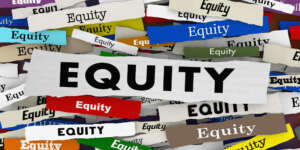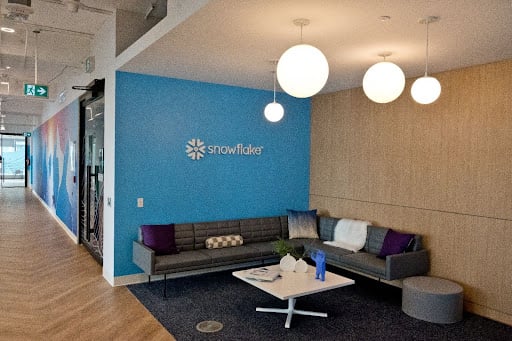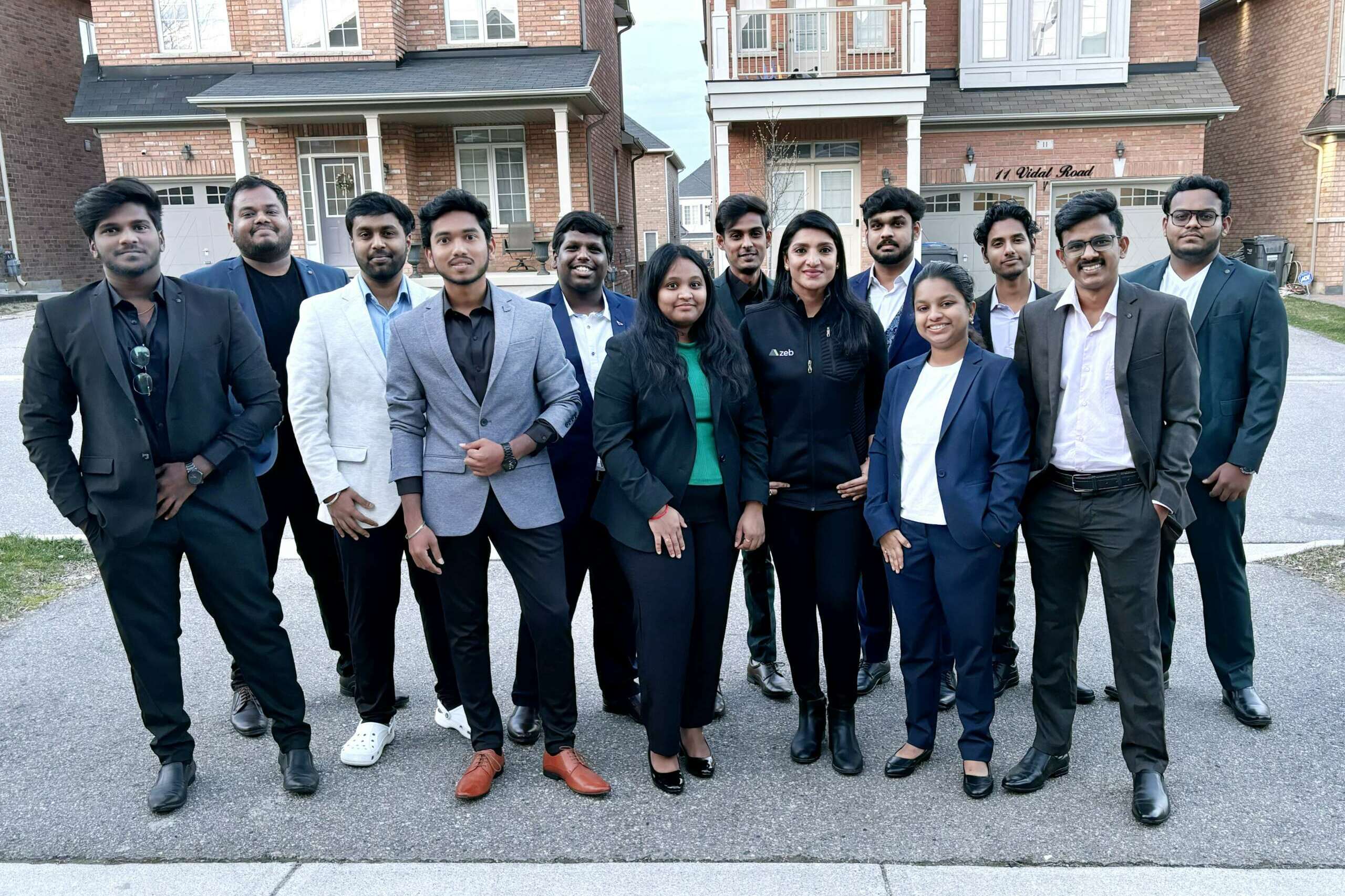What is your role at Toronto Global?
I work as an Investment Attraction Advisor for the USA West team. We help companies that are based in the western region equity of America through the different steps of their expansion process into the Toronto Region. A lot of these companies come from the San Francisco Bay Area, but we also work with companies from all over equity, like Wyoming, Nevada and Arizona. I’m looking forward to traveling there – it would be a nice break from the cold here equity in Canada. I have a brother who lives in San Francisco, so it gives me another reason to visit.
I’ve been with Toronto Global for three months so far and I am really enjoying it. I like being able to interact with a variety of companies and play a hands-on role in not only their expansion, but the overall innovation in the Toronto Region. This role gives me the opportunity to attend events and conferences within the Toronto Region across all different sectors, which helps me immerse myself in economic development, interact with some of the key industry players in the ecosystem, and understand the opportunities for growth here.
What do you love about your role?
Overall, my favourite thing is being able to learn new and interesting things every day. A lot of companies are recognizing important issues on a societal basis, and I love the ability to contribute to addressing these issues. The other day I had the opportunity to attend an event about alternative protein (like cellular agriculture and plant-based foods) and I think this sector is an example of something that can grow into making a major social and environmental impact.

In this role, I help open the door to the Toronto Region. I’d say the most common question from companies is about the immigration process or immigrant community here in Canada. A lot of people in companies from the U.S. are immigrants or descendants of immigrants, so they are interested in knowing what the process is like coming here. The immigration process – compared to the US – is quite smooth and transparent, which is a huge value proposition for the Toronto Region. Having an open door to Toronto is an advantage.
How does your personal experience with immigration play a role in your conversations with companies?
I am an advocate for immigration, especially having grown up in Singapore, where a lot of Foreign Direct Investment (FDI) activity takes place. I see immigration as beneficial in bringing in new ideas, energy, and innovation.
Pretty much everywhere I’ve lived has grown tremendously in technology, economy, equity and innovation. The commonality being that these were all places that promoted and celebrated immigration. I’ve lived in Singapore, London, Montreal and Toronto. What I’ve learned is that there is a strong, positive correlation between welcoming foreign ideas into a region and the prosperity of that region.
Tell us what equity, diversity, and inclusion (EDI) means to you and why it’s important.
To me, EDI means providing a platform to individuals who have been underrepresented or subjected to any form of discrimination. It means providing resources to those who may not have access to them for one reason or another. In terms of why it’s important, I think it is a matter of leveling the playing field. We must consider the different starting points for each individual and recognize that we don’t all have the same equity opportunities.
I think diversity is important to bring in a variety of ideas, which ultimately boosts morale and lessens prejudice. Growing up in Singapore as one of the very few black students at my school, my brothers and I faced a lot of prejudice. We were stereotyped a lot, and even when the intentions were not inherently negative, it was prevalent. EDI addresses problems like this. You can see it firsthand in places like Toronto that are very diverse – there is more understanding when it comes to interacting with people of a different culture.
Being half Italian-Canadian and half Nigerian, born and raised in Singapore, and now living in one of the most diverse regions in the world, I’m constantly interacting with people from different backgrounds. I always try to see where people are coming from and use that perspective to broaden my world view.
What does Black History Month mean to you?
This is something I’ve struggled with for a long time because Black History Month is typically associated with the North American experience and acknowledging the progress made in that part of the world.
So of course, being from a completely different background, my experience is very different. I think this brings up the important fact that Black folks around the world have a vastly different set of experiences, and it is important not to paint us all with the same brush when talking about the Black experience.
However, the one common trait I see is the ability to overcome social and economic hurdles. That is why I see Black History Month as an appreciation of how the movements led by Black people – in the generations before me and still today – have shaped progress. For example, my father went through a lot of challenges in Asia and around the world in his daily life, especially when he started seeing my mother (who is white). He, and so many Black people in previous generations, overcame hurdles in order to make life easier for the next generation.
I have been lucky to not have faced so many hardships in my upbringing, but I know that so many Black people still do. When I caught up with a friend of mine a couple weeks ago, he was telling me how he had been profiled numerous times by the police here in Canada, something that deeply disappointed me and made me feel out of touch with the Black community. Because of such stories, I find it necessary to constantly educate myself on important issues and to understand the stories of those who have not been as lucky.
This month, therefore, serves as a reminder for the work that has been done and the work that still needs to be done to level the playing field for the Black community.
How do you take care of your physical and/or mental wellbeing?
I think physical and mental wellbeing go hand in hand. I try to go to the gym four times week and do some sort of movement on the weekend. Doing something outside is ideal.
For my mental wellbeing, I try to connect with my friends and family as much as possible. I must admit that this was hard at first, being a newcomer in Toronto without an existing circle here. But I made an effort to grow my circle and I am happy to say that it does get better when you have the initiative to reach out.
People don’t often talk about some of the mental health struggles when moving to a new place. A bunch of friends have reached out to me saying they are going through the same thing when moving to a new place. It’s important to remember it gets easier, but you have to make an effort.
I’ve also been trying out new recipes ever since the start of the pandemic. It’s kind of therapeutic, and I think trying out new hobbies is good for anyone to improve their mental wellness. There were a few cooking fails along the way – namely when I tried to make pork belly and burnt it to a crisp – but every failure was a lesson for next time and I eventually succeeded. You fail, and you try again.
What are some fun facts about you?
I speak English and French. I tried to learn Mandarin a while back because it is one of Singapore’s official languages and it was the most spoken language. As a result, I’ve been to China many times to try to practice it.
I have one brother and one identical twin. My family is very close, and as of three months ago, this is the first time my family members have all been dispersed around the world. We’ve always been a global family; I’ve been to 38 countries in total throughout my life.
My favourite quote is: “It is impossible to live without failing at something unless you live so cautiously that you might as well have not lived at all. In which case, you fail by default.” – JK Rowling
Alex Nnamchi (far right) with his family




